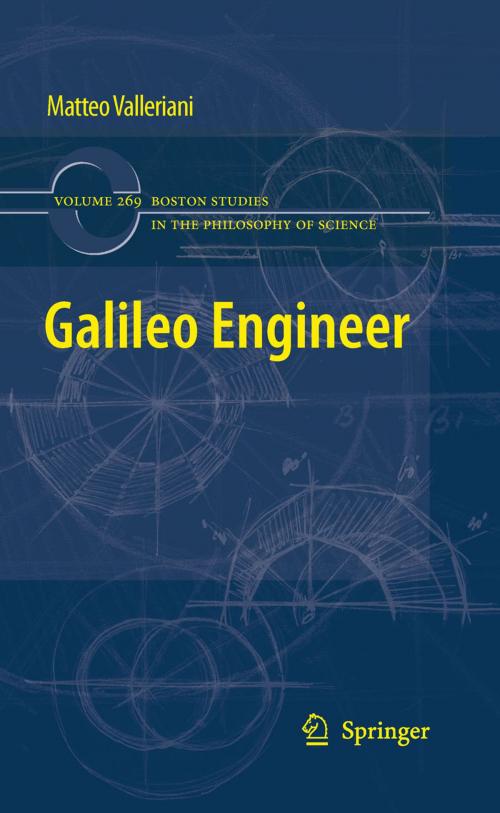Galileo Engineer
Nonfiction, Science & Nature, Science, Other Sciences, Philosophy & Social Aspects, History| Author: | Matteo Valleriani | ISBN: | 9789048186457 |
| Publisher: | Springer Netherlands | Publication: | June 3, 2010 |
| Imprint: | Springer | Language: | English |
| Author: | Matteo Valleriani |
| ISBN: | 9789048186457 |
| Publisher: | Springer Netherlands |
| Publication: | June 3, 2010 |
| Imprint: | Springer |
| Language: | English |
Galileo Galilei (1564–1642), his life and his work have been and continue to be the subject of an enormous number of scholarly works. One of the con- quences of this is the proliferation of identities bestowed on this gure of the Italian Renaissance: Galileo the great theoretician, Galileo the keen astronomer, Galileo the genius, Galileo the physicist, Galileo the mathematician, Galileo the solitary thinker, Galileo the founder of modern science, Galileo the heretic, Galileo the courtier, Galileo the early modern Archimedes, Galileo the Aristotelian, Galileo the founder of the Italian scienti c language, Galileo the cosmologist, Galileo the Platonist, Galileo the artist and Galileo the democratic scientist. These may be only a few of the identities that historians of science have associated with Galileo. And now: Galileo the engineer! That Galileo had so many faces, or even identities, seems hardly plausible. But by focusing on his activities as an engineer, historians are able to reassemble Galileo in a single persona, at least as far as his scienti c work is concerned. The impression that Galileo was an ingenious and isolated theoretician derives from his scienti c work being regarded outside the context in which it originated.
Galileo Galilei (1564–1642), his life and his work have been and continue to be the subject of an enormous number of scholarly works. One of the con- quences of this is the proliferation of identities bestowed on this gure of the Italian Renaissance: Galileo the great theoretician, Galileo the keen astronomer, Galileo the genius, Galileo the physicist, Galileo the mathematician, Galileo the solitary thinker, Galileo the founder of modern science, Galileo the heretic, Galileo the courtier, Galileo the early modern Archimedes, Galileo the Aristotelian, Galileo the founder of the Italian scienti c language, Galileo the cosmologist, Galileo the Platonist, Galileo the artist and Galileo the democratic scientist. These may be only a few of the identities that historians of science have associated with Galileo. And now: Galileo the engineer! That Galileo had so many faces, or even identities, seems hardly plausible. But by focusing on his activities as an engineer, historians are able to reassemble Galileo in a single persona, at least as far as his scienti c work is concerned. The impression that Galileo was an ingenious and isolated theoretician derives from his scienti c work being regarded outside the context in which it originated.















